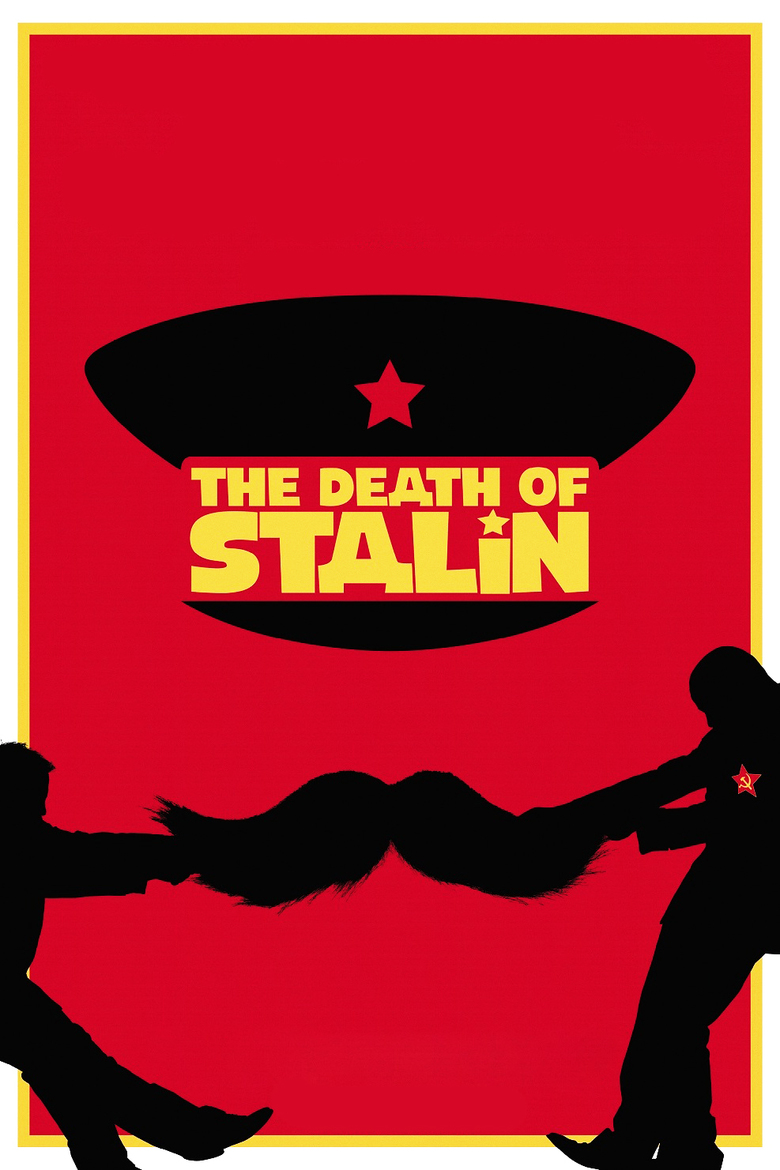
Overview
Based on the graphic novel by Fabien Nury and Thierry Robin, the drama is set in the days following the Russian leader's stroke in 1953 as his core team of ministers tussles for control.
Despite his name, write and director Armando Iannuci was actually born in Glasgow, and has made his name for acute comic observation of the political system, with “The Thick of It” making his reputation. This in turn spawned a movie “In the Loop” and a multi-season US TV spin-off “Veep”. In “The Death of Stalin” he turns his attention to Soviet politics, specifically the night of the death of Joseph Stalin in February 1953, and the events immediately afterwards.
The film keeps quite tightly to the real events, in as far as they are known outside the archives of the Russian secret police, known at the time as the NKVD, which later became the notorious KGB. The film opens at a concert in Moscow, where a panicked musical director gets a call from Stalin himself asking for a recording of the Mozart concert that has just finished, and which Stalin had just heard on the radio. Just one problem: the broadcast was live and there was no recording. No one wanted to tell Stalin that, so the concert was duly replayed in its entirety, complete with audience, this time safely recorded. An example of how fiction often cannot outdo life is that in the movie the orchestral conductor faints in terror, is incapacitated and cannot continue, and a replacement has to be found. Real life was even stranger: not one but two successive conductor replacements were tracked down, but both were too drunk to perform; fortunately a third conductor was found and the concert was duly replayed. The film director apparently thought that no one would believe the real-life repeated struggle to find a replacement conductor.
This scene is a clever way to set the tone, establishing the Kafkaesque atmosphere and genuine terror that the citizenry must have had of the ruling party, and comrade Stalin in particular, while providing plenty of comic moments. No one knows how many millions of people really died in the increasingly paranoid Stalin’s succession of purges, but millions it was. Towards the end Stalin was quite ill and suspected his doctors of a conspiracy against him. Many leading Moscow doctors were duly rounded up in the year before his death, and on the night of Stalin’s brain haemorrhage there was some difficulty in finding a competent doctor to assess him. This was another comic gift from history to the screenwriter.
The bulk of the film recounts the plotting of the central governing committee (Politburo) in the immediate aftermath. In a one-man totalitarian state, succession planning was not a subject that was brought up in committee, at least not twice. Steve Buscemi plays Nikita Khrushchev, one of the members of the Politburo that need to decide on a course of action. Stalin’s indecisive deputy Malenkov (played by Geoffrey Tambor) and NKVD chief Beria (Simon Beale) seize power, much to the disquiet of the rest of the committee, which includes Molotov (a fine performance by Michael Palin) and Mikoyan (Paul Whitehouse). Things are brought to a head by the arrival of head of the army Zhukov, played by an inspired Jason Isaacs.
This comedy is as black as the ace of spades, with Beria issuing detailed orders about the manner of the executions being carried out, and with an understandable air of paranoia amongst the scheming Politburo plotters, any of whom was at risk of being denounced and shipped off to Siberia or worse. One inspired idea was not to attempt to get the actors to mimic Russian accents. Instead Zhukov has a broad Yorkshire twang, which somehow keeps the dialogue firmly in comic territory despite the distinctly gruesome events unfolding. Only the ending of the film takes serious liberties with history, but certainly delivers some drama and snaps the audience back to appreciating the sheer brutality of events, despite the at times hysterically funny lines. Buscemi is masterful as Khrushchev, and indeed the whole cast delivers the many zingers of the brilliant script to great effect. As an after-note, the film has not gone down well in Russia, where the Ministry Of Culture has apparently considered banning it, an act worthy of Stalin himself.
★★★★½
